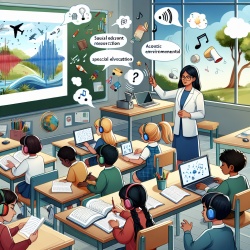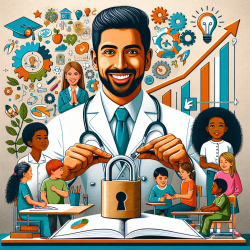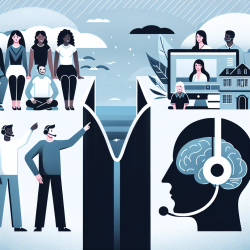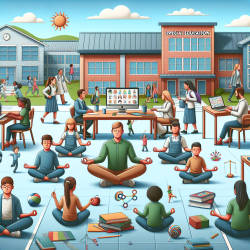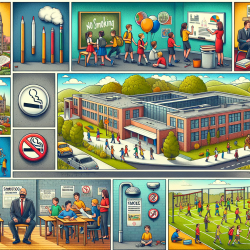In the world of speech therapy, practitioners are constantly seeking innovative methods to enhance their practice and better support their clients. One such method that has gained attention is nonword repetition (NWR), a task that challenges both cognitive and motor skills by requiring individuals to repeat unfamiliar word-like sounds. A recent study titled Nonword Repetition and Speech Motor Control in Children sheds light on how NWR tasks can be used to improve speech therapy outcomes.
The Power of Nonword Repetition
The study conducted by Christina Reuterskiöld and Maria I. Grigos at New York University explores the intricate relationship between cognitive processes and speech motor control in children. By examining how children and adolescents modify their articulatory control during the repetition of real words (RWs) and nonwords (NWs), the researchers have provided valuable insights into the development of language skills.
The findings indicate that both jaw movement duration and variability increase during tasks with higher phonological short-term memory (PSTM) demands, such as NWR. This effect is more pronounced in younger children, suggesting that NWR tasks can be a powerful tool for assessing and developing language skills in this age group.
Practical Applications for Speech Therapists
As a speech therapist, integrating NWR tasks into your practice can offer several benefits:
- Assessment Tool: Use NWR tasks to assess phonological memory and articulation skills in children. The increased cognitive demand of these tasks can reveal underlying language impairments that may not be apparent with traditional word repetition exercises.
- Skill Development: Incorporate NWR tasks into therapy sessions to help children develop better articulatory control and improve their phonological memory. This can lead to more accurate speech production over time.
- Cognitive Engagement: Challenge your clients' cognitive abilities by varying the length and complexity of nonwords. This not only keeps sessions engaging but also promotes cognitive development alongside language skills.
The Road Ahead: Encouraging Further Research
The study by Reuterskiöld and Grigos highlights the need for further research into the complex relationship between speech motor control and cognitive processes. As practitioners, staying informed about new findings in this area can enhance your ability to provide effective therapy.
If you're intrigued by the potential of NWR tasks and want to explore this topic further, consider delving into the original research paper for a deeper understanding of the methodologies and findings. You can access it here: Nonword Repetition and Speech Motor Control in Children.
The integration of cutting-edge research into your practice not only enhances your professional development but also ensures that you are providing evidence-based interventions that can significantly impact your clients' progress.



